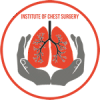The posterior mediastinum is a crucial anatomical region located in the middle of the chest, behind the heart and in front of the spine. This space houses various structures, including the esophagus, thoracic duct, aorta, sympathetic trunk, and lymph nodes. While it is a relatively confined space, several disorders and conditions can affect these structures, potentially leading to various health challenges. In this comprehensive blog post, we will explore some of the common disorders and conditions that can impact the structures in the posterior mediastinum, shedding light on their causes, symptoms, and available treatment options.
1. Esophageal Disorders
A) Gastroesophageal Reflux Disease (GERD)
GERD is a chronic condition characterized by the backward flow of stomach acid into the esophagus, causing irritation and inflammation. The posterior mediastinum houses the lower part of the esophagus, making it susceptible to the effects of GERD.
Symptoms:
- Heartburn
- Regurgitation
- Chest pain
- Difficulty swallowing
- Chronic cough
Treatment:
Lifestyle modifications, over-the-counter antacids, prescription medications, and in severe cases, surgical procedures like fundoplication may be recommended.
B) Esophageal Cancer
Esophageal cancer is the abnormal growth of cells in the esophagus, and it can affect the posterior mediastinum if the tumor grows and spreads to nearby structures.
Symptoms:
- Difficulty swallowing
- Unintended weight loss
- Chest pain
- Hoarseness
- Chronic cough
Treatment:
Treatment options depend on the stage and type of cancer and may include surgery, radiation therapy, chemotherapy, targeted therapy, and immunotherapy.
2. Neurogenic Tumors
Neurogenic tumors are growths that develop from nerve tissue and can affect the sympathetic trunk within the posterior mediastinum.
Symptoms:
- Chest pain
- Difficulty breathing
- Neurological changes if the tumor compresses nerves
Treatment:
Surgical removal is the primary treatment for neurogenic tumors. In some cases, radiation therapy may be used as an adjunct.
3. Thoracic Aortic Aneurysm
A thoracic aortic aneurysm is an abnormal bulging or ballooning of the aorta, the large artery that carries blood from the heart through the posterior mediastinum.
Symptoms:
- Most cases are asymptomatic
- Chest or back pain
- Shortness of breath
- Coughing
Treatment:
Treatment may involve monitoring the aneurysm’s size, managing blood pressure, and surgery for larger aneurysms to prevent rupture.
4. Thoracic Duct Disorders
A) Thoracic Duct Obstruction
The thoracic duct is responsible for draining lymph fluid from the body. Obstruction of the thoracic duct can cause lymphatic fluid buildup in the posterior mediastinum.
Symptoms:
- Swelling in the arms and legs (lymphedema)
- Chest pain
- Respiratory difficulties
Treatment:
Treatment may involve addressing the underlying cause of obstruction, such as trauma or tumors. Lymphatic drainage and compression garments may also be helpful in managing symptoms.
5. Hiatal Hernia
A hiatal hernia occurs when a portion of the stomach protrudes through the diaphragm into the posterior mediastinum.
Symptoms:
- Heartburn
- Regurgitation
- Chest pain
- Difficulty swallowing
- Feeling of fullness after meals
Treatment:
Mild cases may be managed with lifestyle changes and medications. Severe or symptomatic cases may require surgical repair.
6. Lymphoma
Lymphoma is a type of cancer that affects the lymphatic system, including lymph nodes in the posterior mediastinum.
Symptoms:
- Swollen lymph nodes
- Unexplained weight loss
- Fatigue
- Night sweats
Treatment:
Treatment for lymphoma may include chemotherapy, radiation therapy, immunotherapy, and targeted therapy.
Conclusion
The structures in the posterior mediastinum play vital roles in the functioning of our cardiovascular, digestive, and lymphatic systems. Disorders and conditions affecting this region can have significant health implications. Early diagnosis and prompt treatment are essential for better outcomes. If you experience persistent symptoms related to the posterior mediastinum or have concerns about your health, it’s crucial to seek medical attention from a qualified healthcare professional.
Remember, the information provided here is for educational purposes only and should not replace personalized medical advice. If you or someone you know is facing any disorders or conditions that can affect the structures in the posterior mediastinum, consult a healthcare provider for accurate evaluation and guidance.






